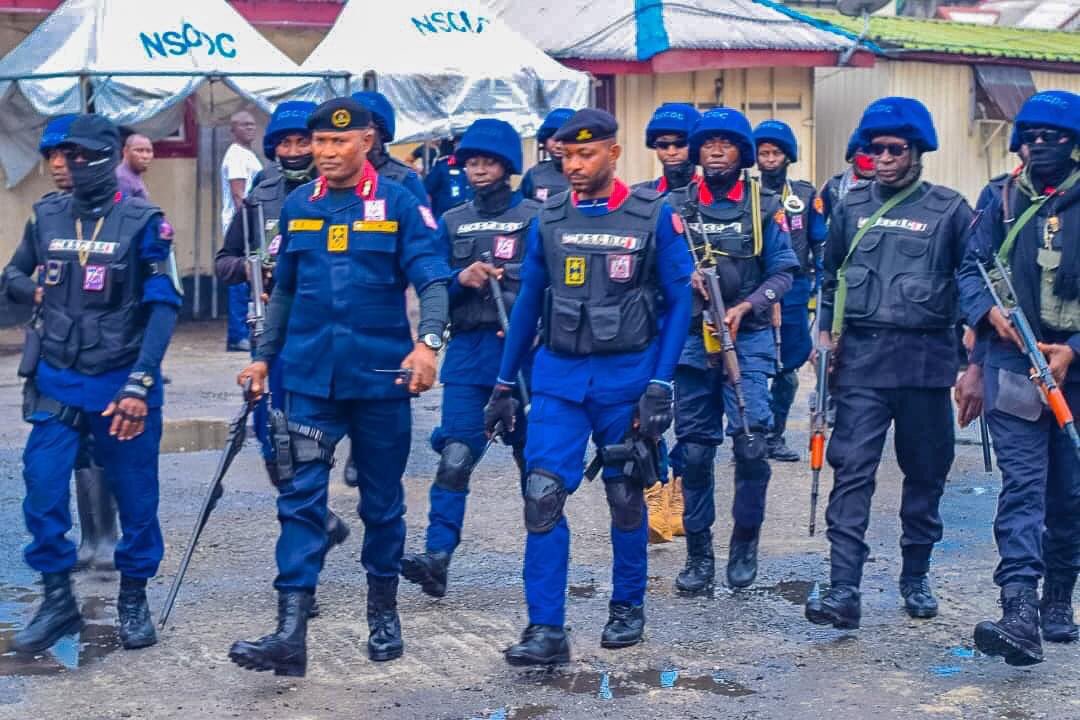Niger Delta
NSCDC, Ministry Arrest 21 Illegal Miners In C/River

The Nigeria Security and Civil Defense Corps (NSCDC) in collaboration with the Federal Ministry of Mines and Steel Development, has arrested 21 suspected illegal miners in Cross River State.
The suspects were arrested in Utanga Community in Obanliku Local Government Area (LGA) of the State on May 11.
Commandant of NSCDC in the State, Mr Samuel Fadeyi, who paraded the suspects on Monday at the NSCDC headquarters in Calabar, said they were arrested at the illegal mining site in Utanga Community.
Fadeyi said the illegal mining in the area was capable of heightening security challenges and causing natural disaster in the community.
“Our search light was able to identify a place in Utanga Community in Obanliku LGA where we raided 21 suspects caught in the act of illegal mining.
“We arrested them together with their implements and tools. The suspects are undergoing investigation and soon, we will prosecute them.
“Some communities are complicit in this illegal mining activities in their area because they rely on peanuts that comes out of it and forget the challenges that may come thereafter.
“These illegal activities can attract criminal elements, warlords, insecurity and disaster in the area during the process of digging.
“Rather, they would have approached the Federal Mines office and get a license and allow the mines officer to put them through before going into such activities”, he said.
Mr Mayowa Omosebi, the Federal Mines Officer in charge the state, said they have been strategising over time on how to arrest the suspects and put an end to illegal mining in the area.
Omosebi said the office was facing the challenge of funding to operate optimally in bursting such illegal sites and make arrest.
“What we are asking for is more funding because of the peculiarity of distance in Cross River, the headquarters of the state office is very far from where you have the illegal activities taking place.
“There is no place illegal mining activities is taking place without the consent of the land owners; I have organised a stakeholders forum to educate them on the need to do the right thing.
“The license for mining process is very straight forward, and we keep advising them to explore the right channels and shun illegality”, he said.
One of the suspects, Vincent Abien, a Youth Leader of Utanga Community, said he was aware that there was digging ongoing in the site, but he did not know it was illegal mining.
The Tide source reports that the items recovered from the suspects include; pumping machines, shovels, diggers, and head-pans.
Niger Delta
A’Ibom Unveils Industrial Park For Manufacturing

Niger Delta
Oborevwori Weeps over Senator’s Death

Niger Delta
Nasarawa D’Gov, Others Condole Diri, Ewhrudjakpo Family




